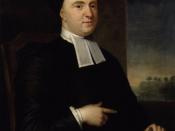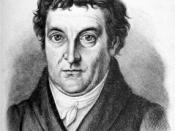Idealism, the philosophical view that the mind or spirit constitutes the fundamental reality, has taken several distinct but related forms. Objective idealism accepts common sense Realism (the view that material objects exist) but rejects Naturalism (according to which the mind and spiritual values have emerged from material things), whereas subjective idealism denies that material objects exist independently of human perception and thus stands opposed to both realism and naturalism.
Plato is often considered the first idealist philosopher, chiefly because of his metaphysical doctrine of Forms. Plato considered the universal Idea or Form--for example, redness or goodness--more real than a particular instance of the form--a red object, a good action. According to Plato, the world of changing experience is unreal, and the Idea or Form--which does not change and which can be known only by reason--constitutes true reality.
The 18th-century epistemologist George Berkeley was one of the major exponents of idealism.
He held that the object of knowledge is an idea and that ideas can exist only in the mind; therefore, objects can exist only as objects of consciousness. Berkeley's dictum esse est percipi ("to be is to be perceived") has clear metaphysical implications. Indeed he called his theory immaterialism and intended it as a refutation of traditional materialism.
Immanuel Kant held that it is impossible to gain knowledge of the world by either reason or sense experience alone. Whereas in ordinary idealism the individual subject's awareness is the basic element of reality, in Kant's transcendental idealism the subject in general--not a particular subject, but the universal structure of all subjects--is the basic element of reality. This universal subject, the transcendental self, is the precondition of any knowledge of an objective world.
Kant's successor Johann Gottlieb Fichte postulated a creative Ego as the ultimate source of reality, which generates all change...


